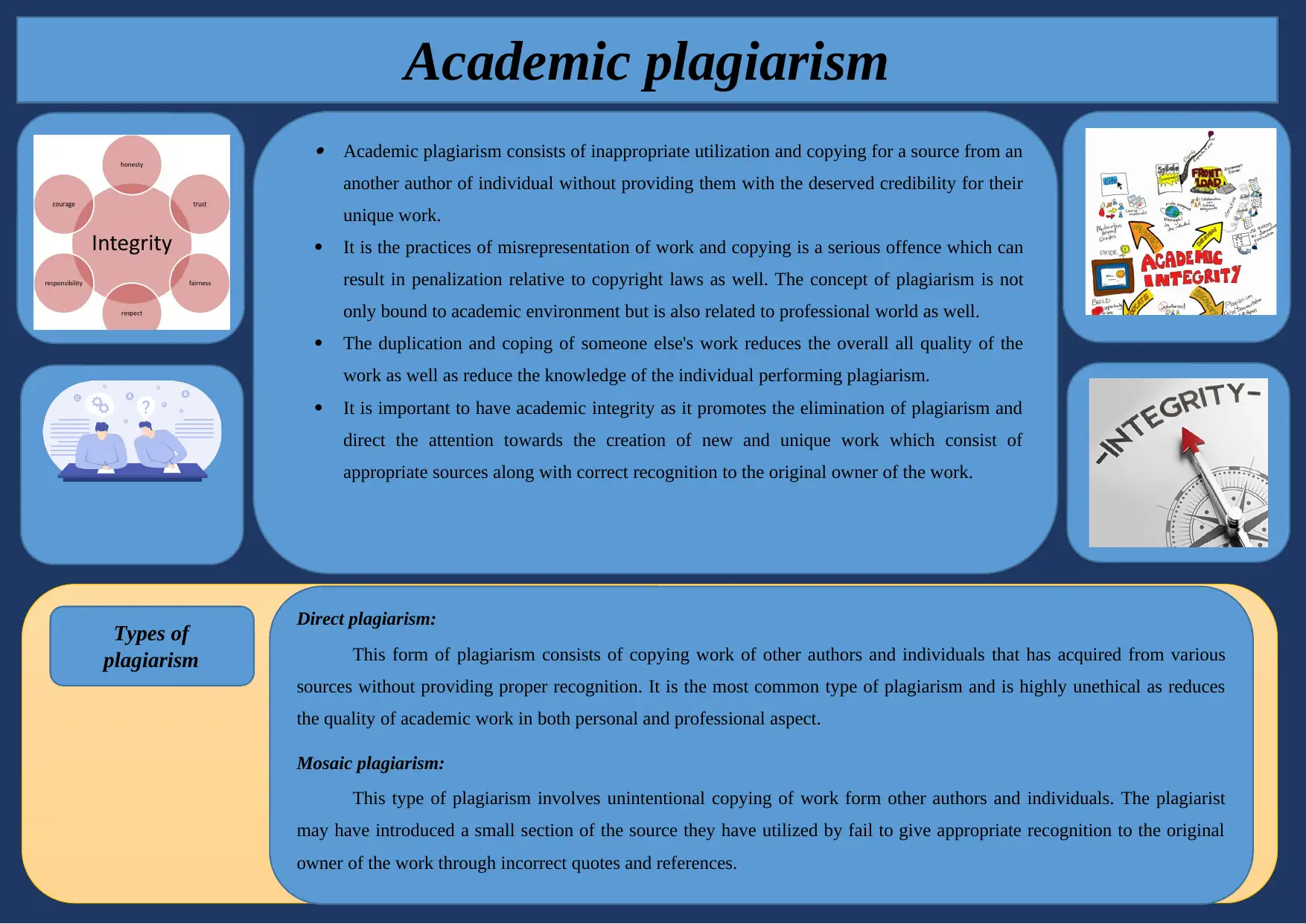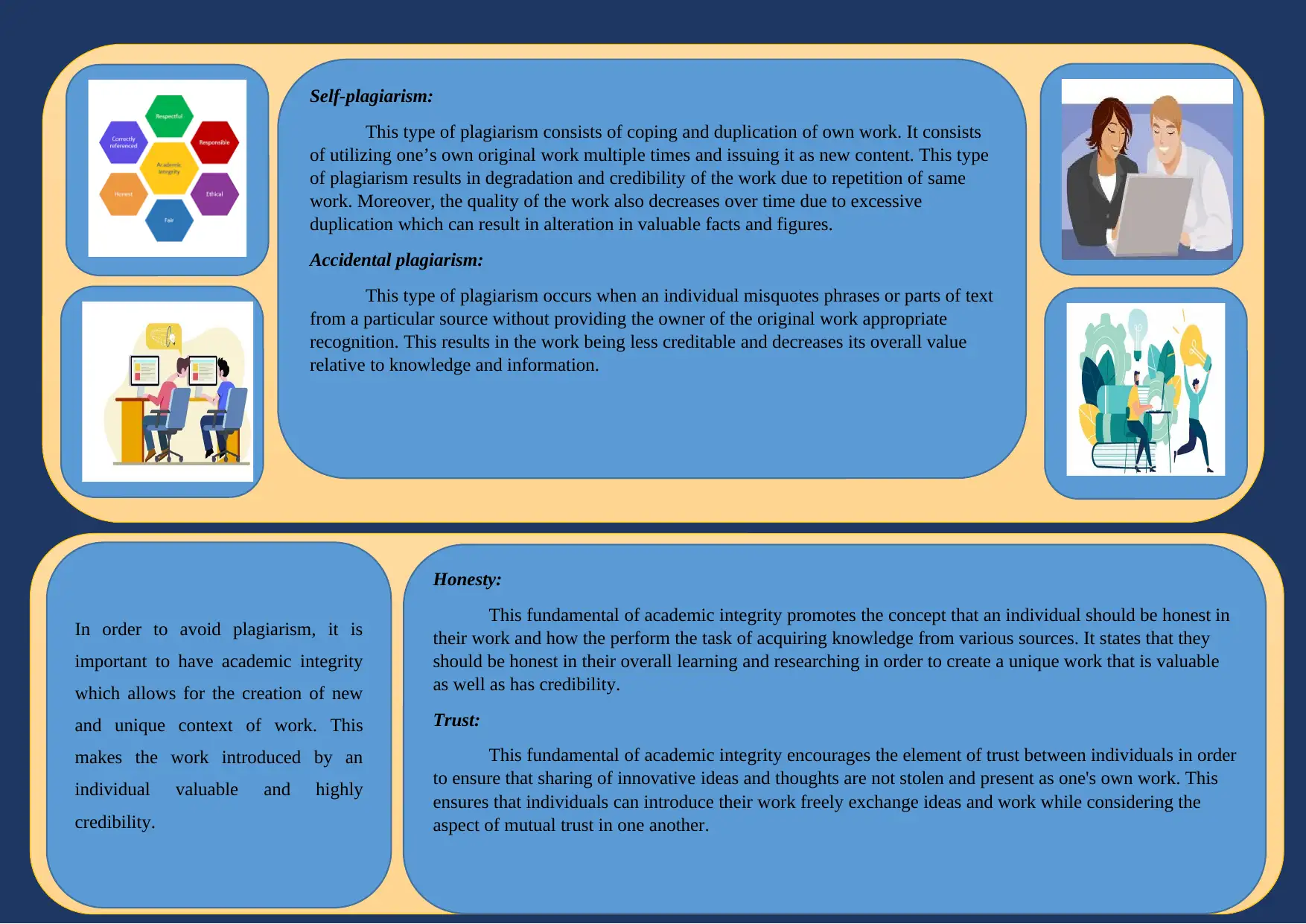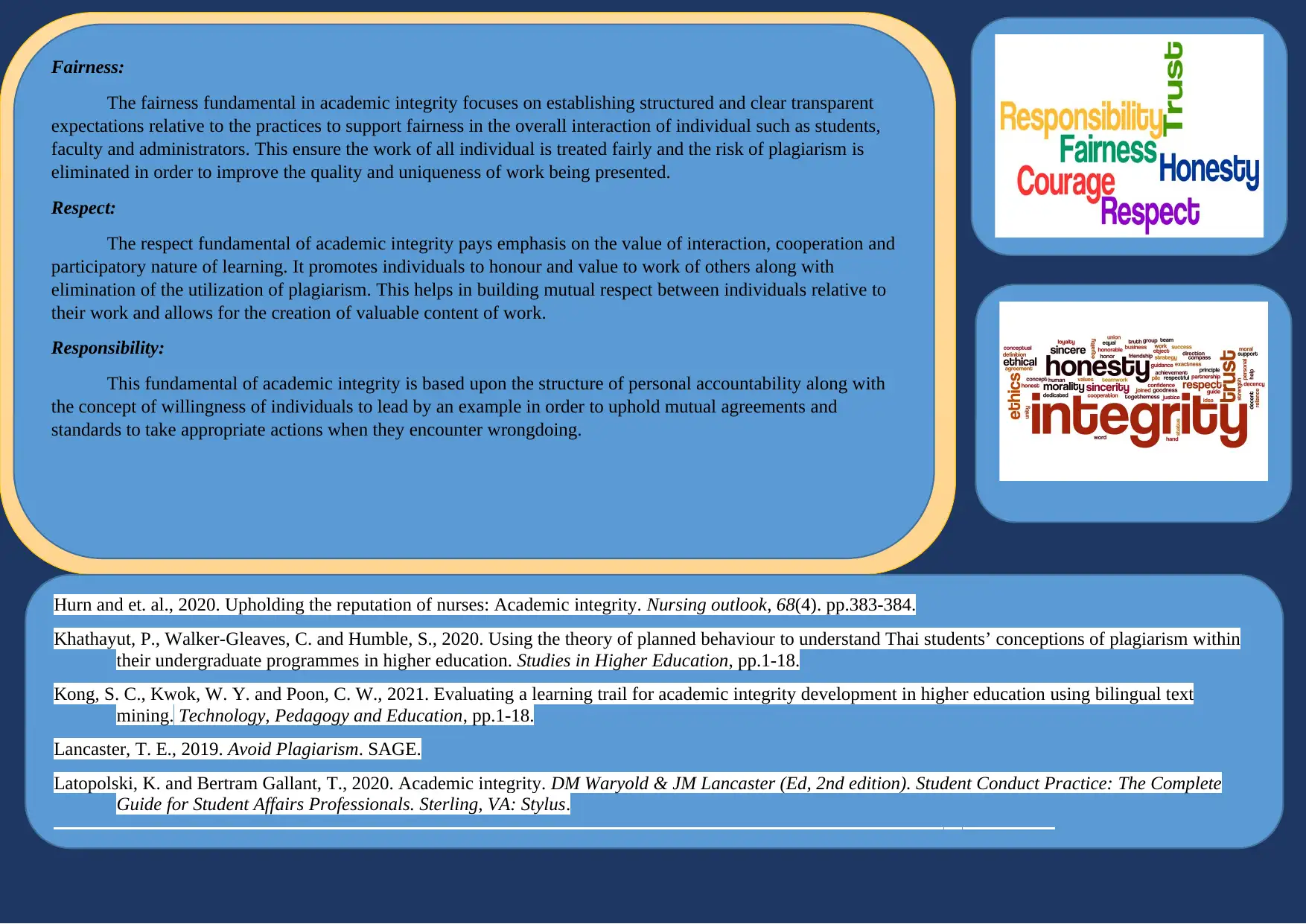Academic Plagiarism: Types, Consequences, and Importance of Academic Integrity
VerifiedAdded on 2023/06/16
|3
|922
|354
AI Summary
This article discusses academic plagiarism, its types, and consequences. It also emphasizes the importance of academic integrity and its fundamentals, including honesty, trust, fairness, respect, and responsibility. The article provides relevant sources for further reading.
Contribute Materials
Your contribution can guide someone’s learning journey. Share your
documents today.
1 out of 3






![[object Object]](/_next/static/media/star-bottom.7253800d.svg)